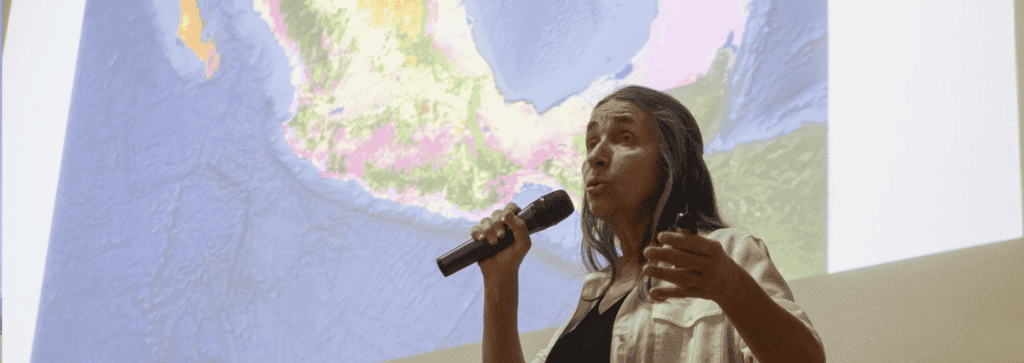Faced with the threat of President Andrés Manuel López Obrador of disappearing the National Institute for Transparency, Access to Information and Protection of Personal Data (INAI), Julia Carabias, a member of the National College, recalls that it is an autonomous body that represents a social achievement.
“For a long time, our country was governed without information. To the extent that there is no information, you don't know what is happening or how the government is performing,” Carabias said in an interview with Causa Natura.
The also environmental researcher at the National Autonomous University of Mexico considered López Obrador's statements to eliminate the INAI unfortunate; since it would represent an “enormous setback”.
“I can't imagine that a country can govern itself in a democracy without access to information. I also don't think this is a problem of saving a budget. This, rather, seems like a pretext to me,” Carabias said.
The ultimate goal of the INAI is not to combat corruption, but it can be a tool that helps alleviate this scourge through public and transparent information and then take further steps, recalled the environmentalist.
“What I feel rather is that the current government is uncomfortable providing information, that it is obliged to provide information,” said Carabias.
The presidential suggestion that the Secretariat of Public Service (SFP) absorb the functions of the INAI does not apply institutionally. “There can be no institution that is judge and party, that is within the same government,” he said. Something that international standards have recommended to avoid conflicts of interest.
A journey of struggle for transparency
The first environmental institutions in Mexico in the 1970s were also the product of social pressure, combined with a favorable international context, said Carabias.
“There was the first environmental summit, Stockholm in 1972, and a declaration came out that among its points was the guarantee of access to information by governments. It was pointed out that it had to be a guarantee through national reports, of building surveillance systems, of producing indicators,” he recalled.
The General Law on Ecological Balance and Environmental Protection of 1988 already had a section on access to information and in 1996 a reform was carried out in which one of the most important chapters was the right to information, said Carabias, who headed the Ministry of Environment, Natural Resources and Fisheries, between 1994 and 2000.
“This process of informing citizens was built, because for us at that time it was key that organizations of society, local groups and scientists were involved in the work,” said Carabias.
Requests for information Environmental impact and risk
assessments; water rights and discharges; forest permits and authorizations in federal maritime land zones are some of the instruments that society asks the most about through requests for information, the expert listed.
The researcher highlighted the clarity that has been achieved regarding budgetary management through information mechanisms.
“In terms of the budget, how has it been exercised, and from there, evaluations have been made. Fundar has made many important documents from these assessments of public spending on environmental matters and the sharp decline has been demonstrated,” said Carabias.
In addition, the expert highlighted that thanks to the requests, it has been possible to obtain information on the state of the fisheries, where work has highlighted the problems of the decline of healthy populations and the increase of populations at risk. Information available for social scrutiny.
“What transparency of information and access to information by the public does is that it allows us to know what decisions public officials are making in their respective years, and if they are being implemented or not,” said Carabias.
“The INAI is a social achievement”: Julia Carabias
Faced with the threats of President Andrés Manuel López Obrador of disappearing the National Institute for Transparency, Access to Information...Juan Luis García
February 1, 2021

Written by
Juan Luis García

Through investigative journalism we reaffirm our commitment to the human right to information.
Contact comunicacion@causanatura.org

Comentarios (0)